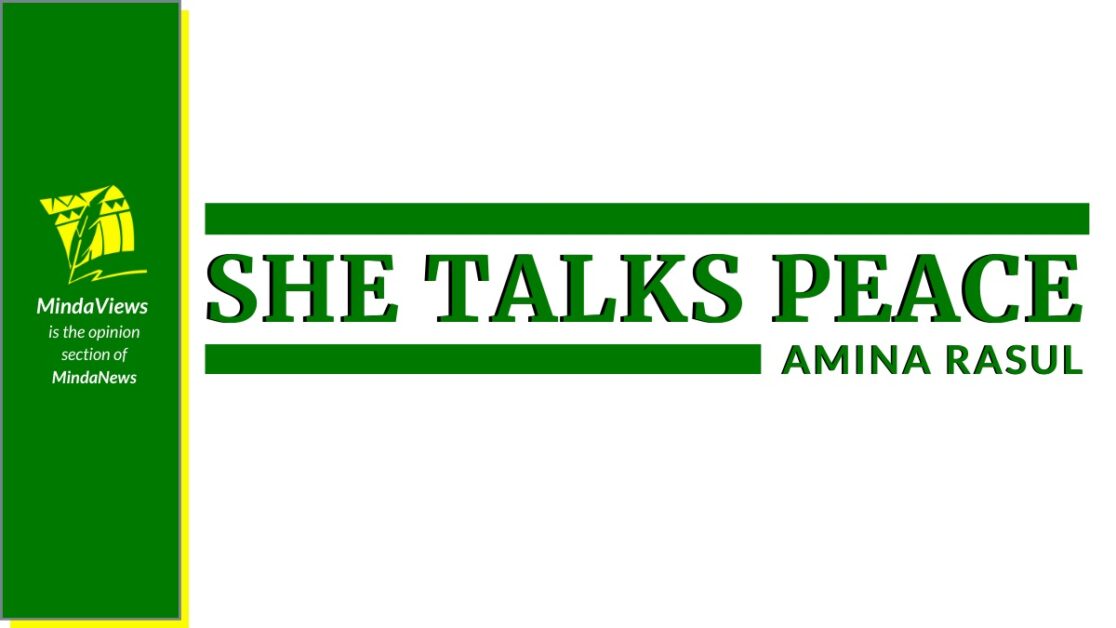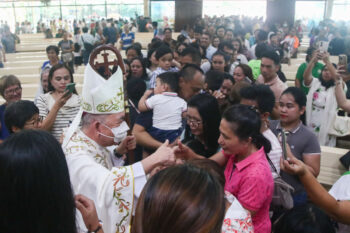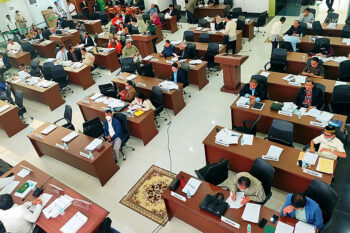
QUEZON CITY (MindaNews / 13 Feb) — Last Friday, I was part of a panel for the United States Institute for Peace-RESOLVE Global Forum Series. The topic, “Conflict and Violent Extremism in Southeast Asia,” explored “historical ties, ongoing developments, cross-border dynamics and their implications for our understanding of current and future manifestations of violent extremism and conflict in the region.” Terrorist activity may have lessened in Southeast Asia but many of the historical dynamics remain, influencing the growth and evolution of extremism and conflict in Southeast Asia. (https://youtu.be/FzTOeWoCER4)
I provided a snapshot of the dynamics that has led to the dismal state of security in Sulu, my home province. It wasn’t always so. As I cite in my lectures, we were relatively well off before the imposition of Martial Law in 1972 – we had better access to water and electricity than many Mindanao provinces that are now much richer than us. We had more banks than they did. But when Jolo was bombed in 1974 to drive out the Moro National Liberation Front (MNLF), we lost our infrastructure, suffered capital flight and brain drain. The loss of these crucial elements for economic growth – at the hands of our own government – has not been replaced. The liberation fronts – both MNLF and MILF (Moro Islamic Liberation Front) – grew from the abuses against the Muslims of Mindanao, a situation that the Organization of the Islamic Conference (now Cooperation ) called “genocide” at that time.
My family lost everything we owned during the devastating Jolo bombing, as did most families in towns that were caught in the middle of the fighting between government troops and the MNLF. We were the original “bakwits.” We Muslims of Mindanao now belong to the poorest ten provinces of the Philippines.
Then President Ferdinand E. Marcos initiated the peace process with the MNLF, realizing that continuing the war was a no-win situation. Decades after, the peace processes between government and the MNLF, then with the MILF, have succeeded. The liberation fronts have accepted autonomy in lieu of independence.
But the memories of those horrible years remain, despite the successful peace processes. Humiliation, discrimination, crushing poverty add fuel to the fiery rhetoric of extremists.
This is the situation we are in today. Thus, the entry of Al Qaeda then ISIS has found welcome in a few areas where the poverty is overwhelming, public services and governance are poor and where transnational crimes – such as gun running, drug smuggling, kidnap for ransom or human trafficking – are economic opportunities that are readily available. Further, the idea of an Islamic caliphate had found acceptance in groups such as the Abu Sayyaf Group (ASG) and local ISIS affiliates, particularly since it had been already raised by the Jemaah Islammiyah decades ago.
To effectively counter or prevent violent extremism from taking root in such fertile soil, we must consider the dynamics inherited from the past. We also must consider the impact of the growing acceptability of ISIS/Taliban interpretation of Islam among some Muslim leaders, which distorts attitudes towards other faiths, curtails the rights of women in our communities which have a history of pluralism and participation of women. We must consider the role women play, both in peacebuilding and in conflict as well as in policymaking.
Why is it important for women to actively participate? Our guest on “She Talks Peace” has worked for many years on encouraging women’s participation in areas of conflict as well as in her own country, Japan. Akiko Horiba is the Program Director and Senior Program Officer of Asia Peace Initiative Department at the Sasakawa Peace Foundation (SPF) with a focus on peacebuilding in Southern Thailand, women’s political participation in Asia and strengthening civil society networks in South East Asia.
Her sister ran, one of 45 women who won a seat out of 465 positions in the Lower House of the Japanese Parliament, last October. Japan ranks 147 out of 156 countries in terms of political empowerment. The Philippines ranks 33 while Malaysia is at 128 (World Economic Forum Global Gender Gap Report, 2020).
Japan’s depressing position in terms of women’s political empowerment pushed political leaders to boost female representation. Former Prime Minister Shinzo Abe pushed for more women participation in politics, his “womenomics” creating a “society where women can shine.” In spite of a 2018 law encouraging parties to have equal number so male and female candidates, change has been slow. Akiko said: “We need a system in which all motivated women, whether or not they belong to a party, can come forward.”
Akiko decries the weak effort of Japanese political parties to encourage women to participate, critical of the excuse given that they could not find capable women candidates. Akiko says that the system is flawed, not transparent. Men decide in a closed room who will be the candidate and the public doesn’t know how they make their decisions.
Further, Japanese women shy away from a career in politics, subjected to harassment when they do enter politics. She has said that Japanese policies on domestic violence, children, women’s rights are not as advanced as other countries (like the Philippines). Women’s perspectives in law and in government policy is important to strengthen society.
Akiko shared her experiences on women leadership in conflict areas. She noted that in Pattani, there are many capable women but not in leadership positions. Peacebuilding suffers, with a male perspective paramount. Inclusive peace process is much more sustainable. She observed that Indonesia had more women participating at the peace tables in conflict areas.
SPF supports more women to be engaged and more men to understand why it is to the benefit of the nation why women should be heard and participating in decision making. In Pattani, Akiko seeks the help and support of male leaders as part of her strategy to get more women involved in meetings.
Do listen to our conversation with Akiko and understand why she says “We have to increase male supporters,”
Please Click, Play and Listen on Spotify:
and Apple Podcasts
(MindaViews is the opinion section of MindaNews. Amina Rasul is the President of the Philippine Center for Islam and Democracy, an advocate for Mindanao and the Bangsamoro, peace, human rights and democracy).







